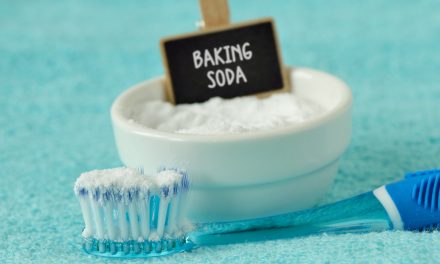Taking care of your teeth and gums affects more than just your smile. Good dental health plays a big role in your overall health and well-being. When you keep your mouth healthy, you help protect your whole body from problems.

Dental health links to many parts of your body. Poor oral care can lead to gum disease, which may raise the risk of heart disease and other health issues. On the flip side, a healthy mouth can boost your confidence and make eating and talking easier.
Regular dental check-ups catch problems early. Brushing, flossing, and seeing your dentist help prevent cavities and gum disease. These simple steps keep your mouth healthy and may even save you money on dental bills in the long run.
Key Takeaways
- Dental health affects overall body health and well-being
- Regular oral care prevents cavities and gum disease
- Dental check-ups catch problems early and save money
The Anatomy of Oral Health
The mouth contains many parts that work together to keep it healthy. These parts include teeth, gums, and saliva. Each plays a key role in oral health.
Teeth and Gum Structure
Teeth are made up of four main parts. The crown is the visible part above the gum line. It’s covered in enamel, the hardest substance in the body. Under the enamel is dentin, which makes up most of the tooth. The pulp is at the center and contains nerves and blood vessels.
Gums protect the teeth and jawbone. They form a tight seal around each tooth to keep out bacteria. Healthy gums are pink and firm. They don’t bleed when brushing or flossing.
The jawbone holds teeth in place. It’s covered by a thin layer of tissue called the periodontal ligament. This helps cushion teeth when chewing.
Function of Saliva in Oral Health
Saliva plays a big role in keeping the mouth healthy. It washes away food particles and bacteria. This helps prevent tooth decay and gum disease.
Saliva also contains minerals that help protect teeth. These minerals, like calcium and phosphate, rebuild tooth enamel. This process is called remineralization.
Saliva helps with digestion too. It contains enzymes that start breaking down food as you chew. This makes it easier for the stomach to digest food later.
Dry mouth can lead to oral health problems. Without enough saliva, teeth are more likely to get cavities. Gums may also become sore or infected.
Link Between Oral Health and Overall Health
Your mouth is connected to the rest of your body. Problems in your mouth can affect your whole health. Taking care of your teeth and gums helps keep your body healthy too.
Oral-Systemic Health Connection
Oral health is linked to overall health in many ways. Poor oral health can lead to issues in other parts of the body. For example, gum disease may raise the risk of heart disease.
Bacteria from the mouth can spread through the bloodstream. This can cause problems in other organs. Some health issues like diabetes can also make oral health worse.
Good oral care may help prevent some diseases. Regular dental check-ups can catch problems early. This helps protect both oral and overall health.
Bacterial Infections and Chronic Diseases
The mouth is full of bacteria. Most are harmless, but some can cause trouble. Poor oral hygiene lets harmful bacteria grow. These bacteria can lead to infections in the mouth and beyond.
Chronic diseases like heart disease and diabetes are linked to oral health. Gum disease may increase inflammation in the body. This can make chronic diseases worse.
Some key connections:
- Gum disease and heart disease
- Oral infections and diabetes
- Tooth loss and poor nutrition
Keeping your mouth clean helps prevent these issues. Brushing, flossing, and dental visits are important for your whole body’s health.
Consequences of Neglected Dental Hygiene
Poor dental hygiene can lead to serious issues. These problems affect not just oral health, but also a person’s overall wellbeing and quality of life.
Tooth Decay and Loss
Neglecting dental hygiene often results in tooth decay. When people don’t brush and floss regularly, plaque builds up on teeth. This sticky film contains bacteria that produce acid, which eats away at tooth enamel.
Over time, this can create cavities. Left untreated, cavities grow larger and deeper. They may reach the inner layers of the tooth, causing pain and sensitivity.
In severe cases, decay can lead to tooth loss. Missing teeth can affect a person’s ability to eat and speak properly. It can also change the shape of their face, making them look older.
Gum Disease and Its Progression
Poor oral hygiene can also cause gum disease. This starts as gingivitis, where gums become red, swollen, and bleed easily. If not treated, it can progress to periodontitis.
Periodontitis is more serious. It can damage the soft tissue and bone that support teeth. As it advances, gums pull away from teeth, forming pockets that can become infected.
The body’s immune response to this infection, along with bacterial toxins, can break down the bone and connective tissue that hold teeth in place. Without treatment, teeth may become loose and need to be removed.
Impact on Physical Appearance and Self-Esteem
Neglected dental hygiene can have a big effect on how a person looks and feels about themselves. Yellow or stained teeth can make someone feel self-conscious about smiling.
Bad breath, also known as halitosis, is another common result of poor oral care. This can make people avoid close conversations and social situations.
These issues can lower a person’s self-esteem and confidence. They might smile less or cover their mouth when they talk. This can affect their personal and professional relationships.
In some cases, dental problems can even change the shape of a person’s face. Missing teeth can cause the cheeks to sink in, making someone look older than they are.
Preventive Care Strategies
Taking care of your teeth and gums helps stop problems before they start. Good habits keep your mouth healthy and can save you time and money at the dentist.
Routine Dental Check-ups
Regular visits to the dentist are key for keeping your mouth healthy. Dentists can spot issues early, when they’re easier to fix. Most people should go every 6 months.
At check-ups, dentists clean teeth and look for cavities. They also check for gum disease and oral cancer. X-rays may be taken to see hidden problems.
Dentists can give tips on brushing and flossing. They may suggest treatments like fluoride or sealants to protect teeth.
Daily Oral Care Techniques
Brushing and flossing every day removes plaque that can cause cavities and gum disease. Brush teeth twice a day for two minutes each time. Use a soft-bristled brush and fluoride toothpaste.
Floss once daily to clean between teeth. Flossing gets rid of food and plaque where brushes can’t reach.
Using mouthwash can help kill germs and freshen breath. Choose one with fluoride for extra cavity protection.
Proper home care is vital for oral health. It helps prevent problems and keeps teeth strong.
Dietary Considerations for Strong Teeth
What you eat affects your teeth. Sugary and acidic foods can harm tooth enamel. Limit soda, candy, and other sweets.
Foods that help teeth include:
- Dairy products (milk, cheese, yogurt)
- Crunchy fruits and veggies (apples, carrots)
- Lean proteins (chicken, fish)
- Water
Calcium and vitamin D build strong teeth. Vitamin C helps gums stay healthy.
Chewing sugar-free gum after meals can increase saliva flow. This helps wash away food and acid.
Modern Dental Treatments
Dental care has come a long way in recent years. New technologies and techniques now allow dentists to fix teeth and improve smiles faster and more comfortably than ever before.
Restorative Dentistry
Restorative dentistry focuses on fixing damaged teeth and replacing missing ones. One common treatment is dental implants. These are artificial tooth roots surgically placed in the jaw to hold replacement teeth.
Another option is dental crowns. These caps fit over damaged teeth to restore their shape and function. Crowns can be made of porcelain, metal, or a mix of materials.
For cavities, dentists now use tooth-colored fillings instead of silver ones. These blend in better with natural teeth. Inlays and onlays are similar but cover larger areas of decay.
Bridges are false teeth that fill gaps between teeth. They attach to nearby healthy teeth for support.
Cosmetic Dental Procedures
Cosmetic dentistry aims to improve the look of teeth and smiles. Teeth whitening is a popular and simple treatment. It uses bleaching agents to remove stains and brighten teeth.
Veneers are thin shells that cover the front of teeth. They can fix chips, cracks, and discoloration. Veneers are custom-made to match a patient’s natural teeth.
Invisalign and other clear aligners offer a less visible way to straighten teeth compared to metal braces. They use clear plastic trays that slowly move teeth into place.
Dental bonding uses tooth-colored resin to repair small chips or gaps. It’s a quick and affordable option for minor fixes.
Children’s Dental Health
Good dental health in children is vital for their growth and development. It affects their ability to eat, speak, and smile with confidence. Proper care early on can prevent issues later in life.
Early Childhood Caries
Early childhood caries (ECC) is tooth decay in young kids. It can start as soon as teeth come in. ECC can cause pain and make it hard to eat or sleep.
Children’s oral health is linked to their overall well-being. Poor dental health can lead to problems in school and social life.
To prevent ECC:
- Clean baby’s gums before teeth come in
- Brush teeth twice daily with fluoride toothpaste
- Limit sugary drinks and snacks
- Take kids to the dentist by age 1
The Importance of Pediatric Dental Care
Regular dental visits are key for kids’ health. Pediatric dentists are trained to care for children’s teeth. They can spot problems early and give tips to parents.
Oral health awareness in kids is linked to parents’ education. Teaching good habits at home is crucial. This includes:
- Brushing twice a day
- Flossing daily
- Eating a balanced diet
- Using a mouthguard for sports
Dentists can apply sealants to protect teeth from decay. They also check for issues like crooked teeth or jaw problems. Early treatment can prevent more serious problems later on.
Aging and Dental Health
As people get older, their dental health needs change. Good oral care becomes even more vital for overall health and quality of life in later years.
Common Oral Health Issues in Older Adults
Tooth decay remains a concern for older adults. Dry mouth often occurs with aging and can increase cavity risk. Gum disease is also common and may worsen without proper care.
Many seniors experience tooth loss. This can make eating difficult and affect nutrition. Dentures or implants may be needed to replace missing teeth.
Oral cancer risk increases with age. Regular dental check-ups help catch it early. Some medications can cause mouth sores or changes in taste.
Root decay becomes more likely as gums recede. Sensitive teeth are also frequent complaints among older adults.
Maintaining Dental Health During Aging
Daily brushing and flossing remain crucial. Electric toothbrushes can help those with limited hand mobility. Fluoride toothpaste strengthens enamel against decay.
Regular dental visits are key. Dentists can spot problems early and provide needed treatments. Professional cleanings remove built-up plaque and tartar.
A healthy diet supports oral health. Limiting sugary foods and drinks helps prevent cavities. Drinking plenty of water keeps the mouth moist.
Quitting smoking improves gum health and lowers oral cancer risk. Using a night guard can protect teeth from grinding during sleep.
For those with dentures, proper cleaning and fit are important. Ill-fitting dentures can cause sores and make eating difficult.
Technological Advancements in Dentistry
Dentistry has seen major technological leaps in recent years. These innovations have improved diagnoses, treatments, and patient comfort.
Innovations in Dental Imaging
Digital X-rays have revolutionized dental imaging. They use less radiation and provide instant results. Dentists can now zoom in on images and enhance them for better analysis.
3D imaging, like cone beam computed tomography (CBCT), offers detailed views of teeth, bones, and soft tissues. This tech helps in planning complex procedures like implants and root canals.
Intraoral cameras allow dentists to show patients real-time images of their mouths. This helps explain issues and treatment options more clearly.
AI-powered imaging software can spot cavities and other problems that might be missed by the human eye. It’s becoming a valuable tool for early detection of dental issues.
Advances in Dental Materials and Techniques
New dental materials are stronger, more natural-looking, and longer-lasting. Composite resins now mimic tooth color better than ever. They’re used for fillings and cosmetic work.
Laser dentistry offers precise, often painless treatment for many issues. It can remove decay, reshape gums, and whiten teeth. Lasers also promote faster healing.
CAD/CAM technology lets dentists create crowns, veneers, and other restorations in a single visit. This saves time and eliminates the need for temporary crowns.
3D printing is being used to make dental implants, aligners, and even dentures. It offers custom solutions that fit better and cost less to produce.
Oral Health Education and Awareness
Good oral health habits start with education. Learning about proper dental care and its impact on overall health can lead to better choices and improved wellbeing.
Community Outreach Programs
Community outreach programs play a key role in dental health education. These programs often target schools, community centers, and underserved areas. They teach basic oral hygiene skills like proper brushing and flossing techniques.
Many outreach efforts include:
- Free dental screenings
- Distribution of toothbrushes and toothpaste
- Hands-on demonstrations
- Informational workshops
Dental professionals often volunteer their time for these programs. They help people understand the link between oral health and overall health. This can lead to better dental habits and more regular check-ups.
Role of Media in Spreading Awareness
Media plays a crucial part in spreading oral health awareness. TV shows, radio programs, and social media campaigns can reach large audiences quickly. They often feature dental experts sharing tips and explaining the importance of oral care.
Some effective media strategies include:
- Short, engaging videos on proper brushing techniques
- Infographics about common dental issues
- Celebrity endorsements promoting regular dental check-ups
Oral health literacy can improve through consistent media exposure. People learn about new dental technologies and treatments. This knowledge can help them make better decisions about their oral health care.
Dental Health Equity
Dental health equity aims to ensure fair access to oral care for all. It addresses gaps in services and outcomes across different groups.
Access to Dental Care Services
Many people face barriers to dental care. Cost is a major issue. Some can’t afford visits or lack insurance. Distance can also be a problem. Rural areas often have fewer dentists.
Language differences make it hard for some to get care. Cultural factors may affect willingness to seek treatment. Dental teams need to understand families’ lives to provide good care.
Some groups have less access to fluoridated water. This affects cavity rates. Mobile clinics help reach underserved areas. Teledentistry is growing as an option.
Socioeconomic Factors and Oral Health Disparities
Income and education strongly impact oral health. Lower-income groups often have worse dental outcomes. They may delay care due to cost. This leads to more serious problems later.
Diet affects oral health too. Healthy food can be expensive or hard to get. Stress from poverty can lead to teeth grinding. It also makes it harder to maintain good habits.
Closing the gap in oral health requires addressing root causes. This includes improving education and job opportunities. Better housing and nutrition also play a role.
Some groups face higher risks. These include:
- Children in low-income families
- Elderly people
- People with disabilities
- Racial and ethnic minorities
Programs targeting these groups can help reduce disparities.
Global Dental Health Initiatives
Global dental health initiatives aim to improve oral health worldwide. These programs focus on prevention, education, and access to care across different countries and regions.
International Collaboration for Better Dental Care
Many organizations work together to enhance dental health globally. The FDI World Dental Federation leads efforts to shape the future of oral health. They promote partnerships between dental professionals, governments, and NGOs.
These collaborations often target underserved areas. They provide dental supplies, training for local healthcare workers, and mobile clinics. Some initiatives focus on specific issues like reducing sugar consumption or promoting fluoride use.
Education is a key component. Programs teach proper brushing techniques and the importance of regular check-ups. They also work to integrate oral health into primary healthcare systems.
World Health Organization’s Role in Improving Oral Health
The World Health Organization (WHO) plays a crucial role in global dental health. Their Global Oral Health Programme sets standards and guidelines for oral health care worldwide.
WHO collaborates with countries to develop national oral health policies. They provide technical support and help monitor progress. The organization also conducts research on oral diseases and their prevention.
A major focus is reducing oral health inequalities. WHO works to make dental care more affordable and accessible in low-income areas. They promote integrating oral health into universal health coverage plans.
WHO also raises awareness about the link between oral health and overall well-being. This helps prioritize dental health in global health agendas.
Frequently Asked Questions
Dental health plays a crucial role in our overall wellbeing. It affects physical health, mental state, and quality of life in various ways.
How does oral hygiene contribute to overall health?
Good oral hygiene helps prevent bacteria from entering the bloodstream. This reduces the risk of infections spreading to other parts of the body. Regular dental care also helps maintain proper nutrition by keeping teeth healthy for chewing and eating.
What are the long-term effects of neglecting oral hygiene?
Neglecting oral hygiene can lead to tooth decay, gum disease, and tooth loss. These issues can cause chronic pain and difficulty eating. Poor dental health may also increase the risk of heart disease, diabetes, and other serious health problems.
What systemic diseases are linked to poor dental health?
Poor dental health has been linked to several systemic diseases. These include cardiovascular disease, respiratory infections, and diabetes. Some studies also suggest connections to certain types of cancer and pregnancy complications.
How does maintaining dental health benefit mental well-being?
Good dental health can boost confidence and self-esteem. It helps prevent pain and discomfort that can negatively impact mood. Proper oral care may also reduce stress and anxiety related to dental issues.
Can good oral hygiene improve self-esteem and quality of life?
Yes, good oral hygiene can significantly improve self-esteem and quality of life. A healthy smile can enhance social interactions and boost confidence in personal and professional settings. It also helps prevent embarrassment from bad breath or visible dental problems.
What best practices in oral hygiene are essential for maintaining general health?
Essential oral hygiene practices include brushing twice daily with fluoride toothpaste. Flossing daily and using mouthwash can also help. Regular dental check-ups and cleanings are important for preventing and detecting problems early.
Conclusion
Dental health plays a vital role in our lives. It affects how we eat, speak, and smile. Good oral care habits can prevent many problems.
Regular dental check-ups are key. They catch issues early before they become serious. Brushing and flossing daily removes plaque and bacteria.
A healthy mouth supports overall health. It may lower the risk of heart disease and diabetes. Poor oral health can lead to infections that spread.
Oral health impacts quality of life. It affects self-esteem and social interactions. People with dental issues may avoid smiling or speaking in public.
Proper nutrition helps maintain strong teeth and gums. A balanced diet with vitamins and minerals supports oral health. Limiting sugary foods and drinks prevents tooth decay.
Elderly people face unique dental challenges. Age-related changes and medications can affect oral health. Special care is needed to maintain good dental hygiene in later years.
Education about oral health is crucial. Understanding proper techniques for brushing and flossing makes a big difference. Knowledge empowers people to take control of their dental health.
















